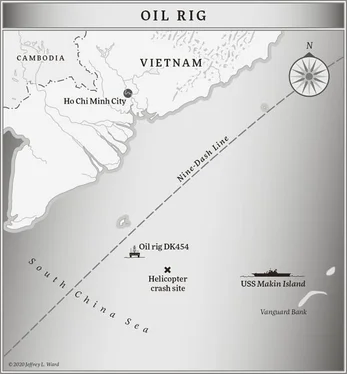“But why am I—”
Ren held out an open hand and frowned. “In this country, there are no why s. Now go, Mr. Bart Stevens. I want you on the next flight out of Kashi.”
“Yeah, um, okay,” Midas said. “I’m really sorry to hear about your brother.” He started to leave, but turned. “There aren’t any flights out until later tonight. Can I at least look around a little bit? I’d really like to see your Sunday Market.”
Ren considered it for a moment, then waved him away. “See that you are on the next plane out. Other than that, I do not care.”
Ren Shuren closed his eyes, wracking his brain for what to do next. Kashi—what the Chinese called Kashgar—was a long way from his ultimate bosses in Beijing. His immediate superior was busy juggling his wife and two mistresses, so he had little time to supervise, and his boss was in Urumqi, fifteen hundred kilometers away. Ren was accustomed to handling things his way on his own terms in his own time. There had been balance in his life. Harmony. They’d been watching Hala Tohti for some time with no problem, something to do with her missing mother that was above Ren’s need to know. Then, out of nowhere, Admiral Zheng of PLA-Navy intelligence had called and ordered him to pick up the girl, on the day after his idiot brother had overstepped his bounds and scared her away—not to mention getting himself killed. Ren saw no need to trouble the admiral with trivial details. The girl would be found soon. There was nowhere for her to go. Security cameras had captured several images of her and the man who had taken her. His face had been covered, but he was tall, and carried himself with the swagger of an American—
His aide drew him out of his thoughts. “Pardon me for saying so, Major,” the young man said. “But you would let the Canadian wander about, with all that is happening at the moment?”
“He is a kept man, dependent on the good graces of a woman like some child, still dragging on the teat. He’s too much of a buffoon to be involved in our matter,” Ren said. “He tripped over his own feet. Not exactly foreign operative material.”
“He admitted to being in the military,” the soldier said.
“He did,” Ren said. “And he is obviously in good physical condition, but I doubt his fitness is because of his job. Note the CrossFit logo on his shirt. Americans and Canadians alike treat their gymnasiums like churches. He may have been in the military, but I guarantee you that all his action was behind a desk, not a rifle.”
Ren dismissed the aide and turned to his computer.
“Wait,” he said, before the aide reached the door. “Follow the Canadian soldier and see that he boards the plane as instructed.”
The young aide braced. “Of course, sir. May I take Corporal Len? Two men would be better if we are to follow him discreetly.”
“Nonsense,” Ren said, swiveling back to his keyboard. “Did I tell you to follow him discreetly? I need all available personnel to find the Tohti child and the man who murdered my brother. If this Vicious Patricia attempts to evade you, shoot him.”
46
Timur Samedi was an hour early—and Clark didn’t like it.
Showing up unexpectedly allowed one to get the lay of the land, take the high ground, spot bad actors who weren’t supposed to be there. But arriving early and making contact early were two different things. You stood off and watched until the appointed time, not an hour early. There were too many unknowns. Early meant either this guy didn’t know what he was doing or something had happened to rush the timetable.
Neither was good.
A constant wind rattled and shook the metal warehouse, muffling the sound of the truck until it was almost on top of them. Clark heard the rumbling engine, the pop of gravel as tires rolled to a stop out front, to the left of the yawning double doors—where trucks came to load their cargo. The old warehouse was empty but for a stack of bolted cotton cloth as high as Clark’s shoulders. Covered with canvas tarps, the bolts were presumably waiting for Samedi to pick up when he came for his passengers—Clark and Hala.
Clark waited in the shadows. The girl squatted a few feet away, weight on her heels, elbows on her knees, the way children all over Asia learn to squat when they are still toddlers and carry it with them to adulthood. She smiled quietly at a speckled hen and five peeping chicks that scratched at the dirt in front of her, inside the barn and out of the wind. After all they’d seen together, it was easy to forget she was only a ten-year-old child.
Clark gave a low whistle, waving Hala over at the sound of a slamming vehicle door. She heard it, too, and scampered over to stand behind his leg.
A Uyghur man appeared at the door, backlit by the dazzling yellow landscape.
Hala tensed and stuffed a hand in the pocket of her blue coat, no doubt touching the Snake Slayer. Good instincts, Clark thought. He patted her on the shoulder to let her know everything was fine—though he was far from sure himself.
“It’s okay,” he whispered. “We are expecting him.”
She began to chew on her collar again, leaning against Clark’s knee.
They’d already discussed how to use the Bond Arms derringer. Unloaded, she’d demonstrated she could cock the hammer with the meat of her thumb and rearrange her grip and press the trigger. She wasn’t going to be doing any quick-drawing, but that was fine. In her case, the little derringer was more of a get-off-me gun. The whole thing exhausted Clark to his core. He believed in starting children early, but if he’d given a ten-year-old kid a pocket pistol in Virginia, society would have sentenced him to five days in the electric chair.
He wanted to calm Hala, but he kept his own hands in his coat pockets, his right curled around the butt of the Norinco pistol.
The Uyghur remained in the doorway unaware, or at least unsure, that they were there. He scanned the interior of the warehouse—apparently unconcerned that he’d made himself a target in the fatal funnel. This didn’t make him harmless, just ignorant. Clark knew from experience that there were plenty of idiot bad guys out there.
The Uyghur craned his neck but made no move to come inside.
“Helloooo?”
Clark motioned for Hala to stay back, and then took a deep breath, stepping out of the shadows. His hand remained in his pocket and on the pistol while he gave the initial passphrase. His words echoed in the hollow confines of the empty warehouse.
“It is dangerous to travel the roof of the world.”
The Uyghur’s head snapped toward the sound, seeing Clark for the first time. He shuffled from side to side, clenching and unclenching his fists, nodding excitedly. “Yes,” he said. “Yes. There are many devils there.”
The word many wasn’t in the passphrase, but the man was obviously nervous, so Clark cut him some slack.
“And angels,” Clark said.
“And angels, too,” the man said, confirming.
Clark made his way across the warehouse. “Samedi?” He shook the man’s hand, wanting to get a read on him.
“Yes,” the man said. His grip was firm, but he withdrew his hand quickly. “Yes, yes. I am Samedi. I get you out …”
It was almost a question.
Samedi was about Clark’s height, thin, with gaunt cheeks and dark BB eyes that darted constantly from point to point. He wore fingerless rag-wool gloves and a ratty karakul hat of curly black wool that looked as though it had been dragged behind a truck. Oddly, he had no overcoat against the bracing wind. His dark sport coat hung open. Beads of sweat dotted sunburned skin over bushy caterpillar brows.
The Uyghur grinned, showing several gaps where there should have been teeth. “You are ready?” The BB eyes bounced around the shadows. The muscles in his face, unencumbered by fat, tensed and twitched beneath patchy black stubble. “Where is the girl? She is ready to go?”
Читать дальше











![Александр Ирвин - Tom Clancy’s The Division 2. Фальшивый рассвет [litres]](/books/417744/aleksandr-irvin-tom-clancy-s-the-division-2-falsh-thumb.webp)
